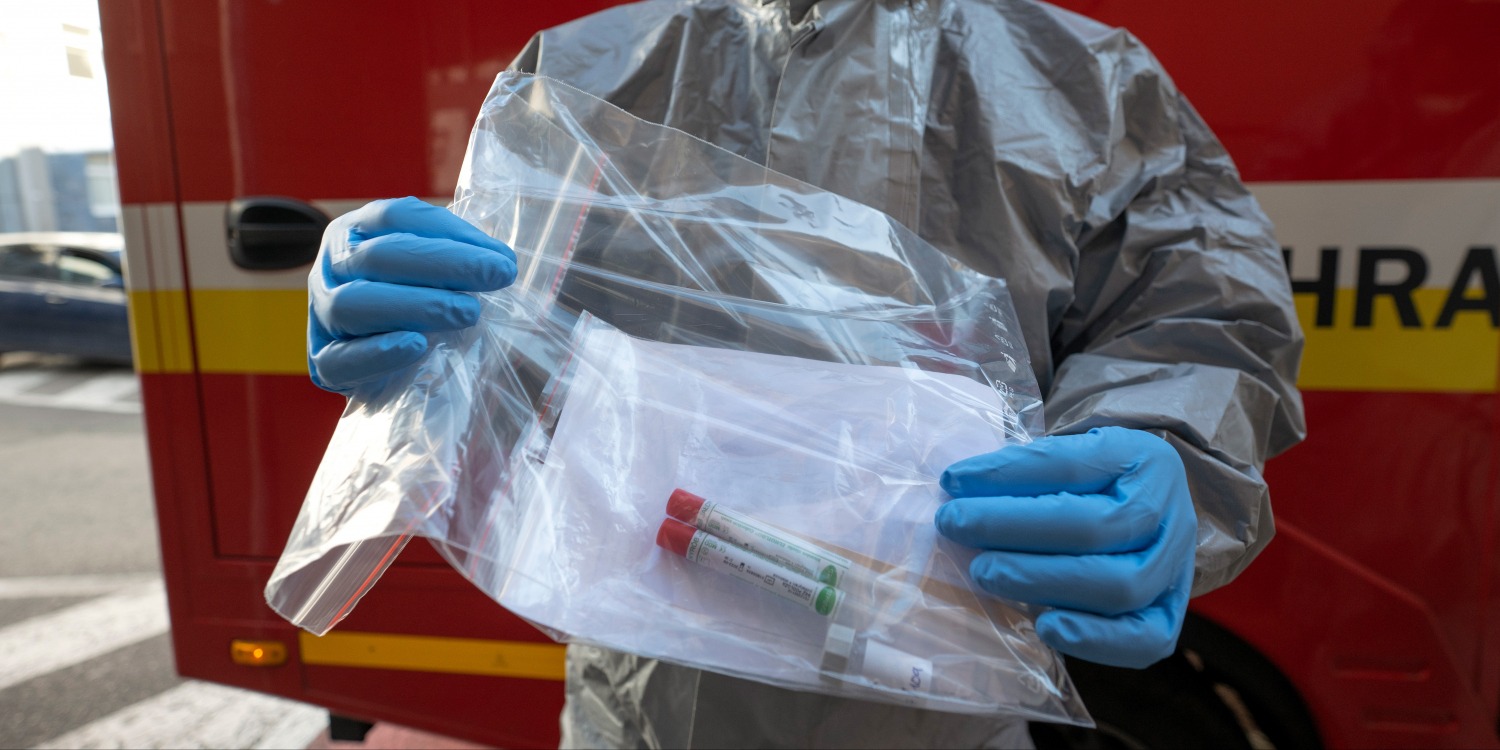They are the key to ending the crisis. While the peak of the coronavirus epidemic in France has still not passed, massive screening would seem to be the most effective weapon to get out of confinement without risking a second wave of contamination. The Minister of Health Olivier Véran also announced Wednesday in the National Assembly a fivefold increase in the number of daily tests. But what are we talking about exactly? Two test methods are possible: PCR and serology. At the microphone of "La France Bouge" Thursday, Raphaëlle Duchemin and his guests took stock of the strengths and weaknesses of these two procedures and their usefulness.
>> Coronavirus: follow live developments
PCR, direct diagnosis
"Queen method" of screening according to the CEO of the company Biosynex, Larry Abensur, the PCR screening test is based on the principle of "chain amplification by polymerase". That is, it locates the genome of the virus. It takes the form of a swab, a kind of long cotton swab, which must be pushed into the patient's nose to collect his DNA. The sample is then immersed in a reagent which indicates a possible presence of the virus. It is this test which is practiced in the drives which have been installed close to the analysis laboratories in recent weeks in France.
>> Watch all of Raphaëlle Duchemin's programs in replay and podcast here
But this method has several disadvantages. In addition to having to wait several hours before the result, the PCR test detects Covid-19 only if a person is sick at the time of the test, and only in the first days of symptoms. Moreover, "you need a medical prescription" to be able to carry it out, indicates to the microphone of Europe 1 the doctor biologist Thomas Hottier. Although apparently simple, this nasopharyngeal sample must be done in a certain way, "until it triggers tears", failing which the detection loses precision and cases of false positives may appear.
>> PODCAST - Coronavirus: find all the answers to your questions here
Serology, to detect infected people
Next comes the serological test. Theoretically more reliable, its usefulness is however different, and therefore complementary. By examining the blood, this method can detect whether a person has had the disease. This therefore makes it possible to quantify the real scale of the epidemic on the territory, but also to identify the famous asymptomatic cases. Where the sample will seek to reveal the presence of the virus, the serological test will detect the consequences. When the body is infected, it "will react with an immune response," says Dr. Alain Calvo, director of development at NG Biotech, a company that has developed its own test.
CORONAVIRUS ESSENTIALS
> How long are healthy carriers contagious?
> What are the side effects of chloroquine?
> Adulterated tests, false calls for donations ...: watch out for scams linked to the coronavirus
> Reading, board games ... How to stimulate your brain during confinement?
> How to avoid gaining pounds during confinement?
This response of the organism to the attack which it undergoes materializes by the presence of "antibodies", and it is the latter that we seek with this method. Nevertheless, it requires "to intervene after a few days of incubation of the disease", the time that our body "engages the first fight against the infection". Note however that for the time being, the French High Authority for Health has not yet validated any of the serology tests on the market.
In France, many researchers, private and public, are working on this question of screening. To find out more about their work, find here the entire program from La France bouge du jour:

